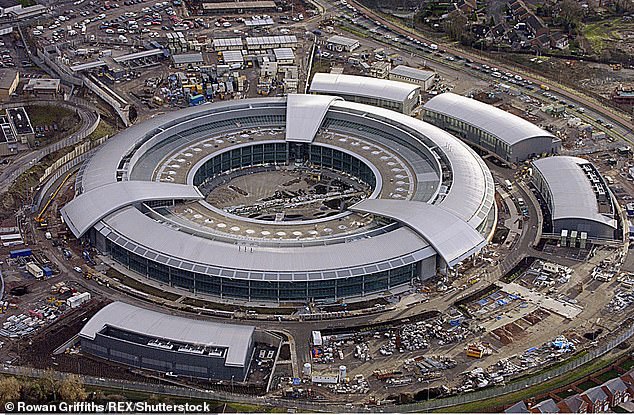British spy agencies BANNED non-white employees until 1980, new official history of GCHQ reveals
GCHQ had a ‘colour bar’ on employees for nearly three decades, a new history of Britain’s eavesdropping agency reveals.
The ban on hiring non-white staff was in place from the 1950s until as late as 1980.
The revelation is made in a ‘warts-and-all’ official history of the spy agency, which also tells how ‘major mistakes’ made in the 1930s left the country wide open to enemy codebreakers at the outbreak of the Second World War.
Behind The Enigma claims to reveal previously unknown details about GCHQ, which works alongside MI5 and MI6 to tackle cyber crime, terrorism, and state threats and attacks.
GCHQ (pictured) had a ‘colour bar’ on employees for nearly three decades
The intelligence service commissioned the first authorised history as part of its efforts to open up more as it marked its centenary year.
John Ferris, a professor of history at the University of Calgary in Canada, was given ‘unprecedented access’ to GCHQ’s archive and policy files, examining around 16 million artefacts, many of which were previously classified.
Professor Ferris said: ‘I think it is essential that I did a warts-and-all account and GCHQ, to its credit, was willing to let me do that.
For example, there is a ‘colour bar’ in employment in GCHQ in the 1950s and 1960s. In other words if you’re not Caucasian, they don’t want you in. And they take active measures to avoid hiring you.’
According to the book, while it was possible, few non-white people would have applied as ‘racism would likely have constrained the chances of any who did apply’.
However, he said his research showed GCHQ was ‘in many ways astonishingly open to working-class men’ compared with other Government departments and agencies at the time, which would typically hire only graduates from the top universities.
Professor Ferris said there were ‘many things’ that with hindsight GCHQ would be unhappy about.
‘In the 1930s, the British make major mistakes in their coding systems, which means that when the war breaks out actually they are very vulnerable to German and Italian codebreakers,’ he said.
The book also reveals how GCHQ helped end the 1962 Cuban missile crisis by telling the Americans that the Russians were not serious about an attack.
Professor Ferris said the spies listening in to Soviet communications became so accustomed to the pace of Russian activity that they knew nothing unusual was happening.
Established in 1919 as a peacetime ‘cryptanalytic’ unit, GCHQ moved from London to Bletchley Park in Buckinghamshire during the Second World War, where staff including Alan Turing decrypted German messages and broke the Enigma code.
Since 1951 it has been based on the outskirts of Cheltenham.
